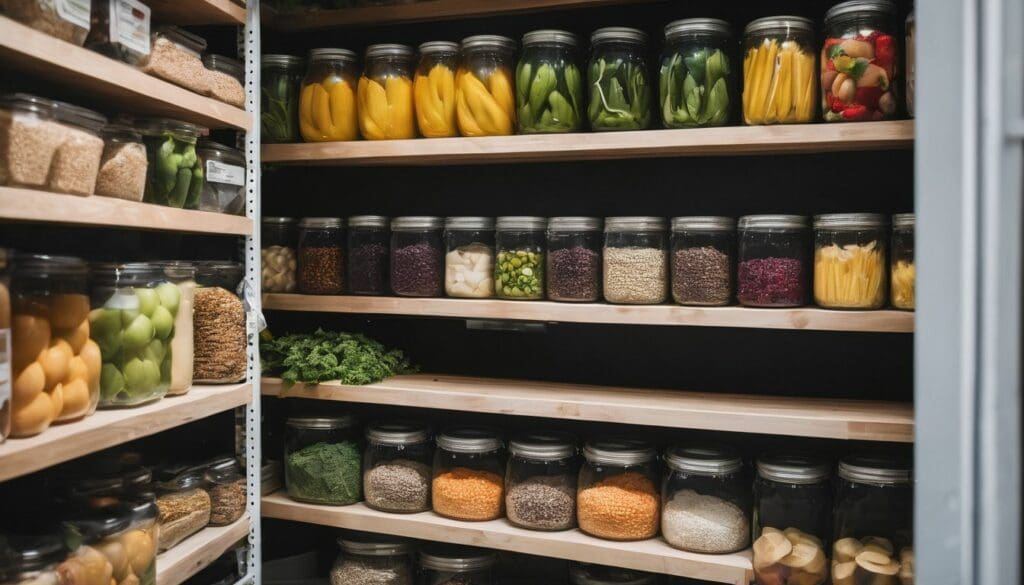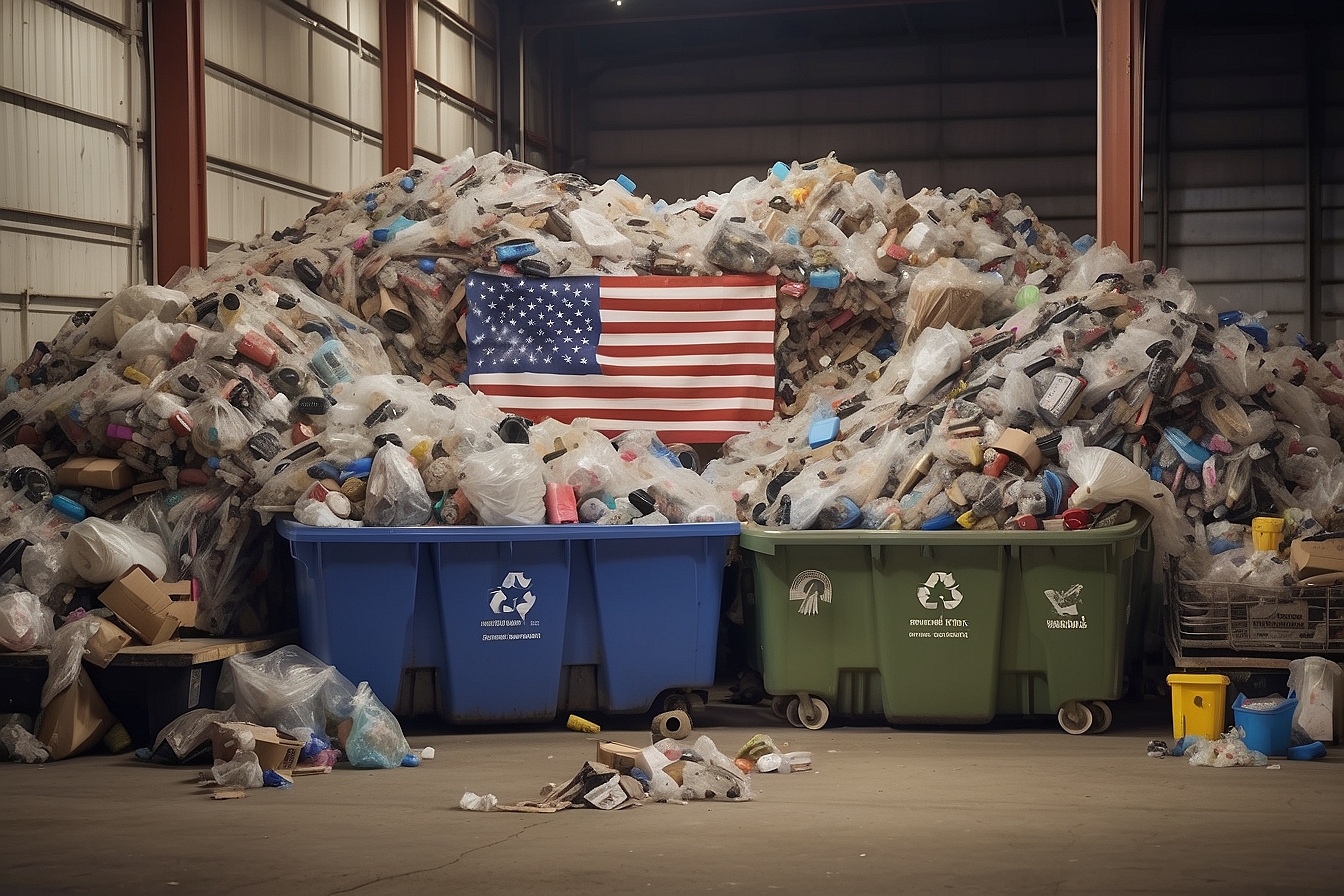We’ve all experienced that twinge of remorse, binning packaging which seems on course to eclipse nature itself. Just like yourselves, we’re no strangers to the cringe-worthy sight of waste – did you know a shocking 91% of plastic goes unrecycled? Our explorations into zero waste shops present tangible solutions for this contemporary conundrum.
Delve in with us and join the movement towards change!
Key Takeaways
- Zero waste shops are expanding in the UK and US as more people choose to shop sustainably and reduce plastic use.
- Customers at zero waste stores bring their own containers to fill with bulk goods like grains and personal care items, helping cut down on single-use plastics.
- These eco – friendly stores not only lessen environmental harm but also support local businesses that offer sustainable products.
- The move towards zero waste shopping reflects a wider commitment to responsible consumption and helps preserve the planet for future generations.
- Innovations such as bulk dispensers, refill stations, and digital platforms are driving the growth of zero waste shops by making it easier for customers to avoid packaging.
The State of Zero Waste
The zero waste movement is gaining momentum, with an increasing number of consumers seeking out sustainable and ethical products. This shift in consumer behaviour has led to the rise of zero waste shops and supermarkets across the UK.
The growth of zero waste shops
Zero waste shops are popping up everywhere, from bustling city streets to cozy neighbourhood corners. They’re revolutionising how we buy our groceries and household items. These ecofriendly grocery stores shun plastic packaging and encourage customers to bring their own containers.
We fill our jars and bags with bulk goods like grains, nuts, spices, and even shampoo—just the right amount we need.
We see a powerful trend towards sustainable living as more people turn away from throwaway culture. Wastefree supermarkets offer an innovative shopping experience that aligns with environmental responsibility.
Shoppers love the personalised touch; they can scoop, weigh, and purchase without contributing to postconsumer waste. It’s not just about food; these shops provide all sorts of plasticfree products for everyday use—from bamboo toothbrushes to reusable beeswax wraps—making zero waste lifestyle choices accessible for us all.
The impact of zero waste on consumer behaviour
Zero waste practices have sparked a shift in consumer behaviour, leading to an increased demand for sustainable and eco-friendly products. Individuals are now more conscious of their environmental footprint, seeking out waste-free grocery stores that offer package-less produce and bulk goods.
This shift towards eco-friendly shopping habits reflects a growing interest in reducing plastic waste and embracing a minimalist, ethical lifestyle. As consumers become more aware of the impact of single-use plastics on the environment, they are actively seeking out zero waste supermarkets and reusable container stores to support waste reduction initiatives.
The rise of zero waste stores has transformed consumer choices, encouraging individuals to opt for environmentally friendly products while promoting ethical consumerism. With an emphasis on sustainable living, wastefree shops provide access to eco-friendly items, thus empowering consumers to make impactful decisions that contribute to conservation efforts and green living.
Embracing this lifestyle not only minimizes environmental harm but also fosters a sense of responsibility towards preserving the planet for future generations.
The Rise of Zero Waste Shops
Zero waste shops are gaining popularity as consumers become more conscious of their environmental impact. These stores offer package-free, bulk goods and sustainable products to help reduce plastic waste.
What are zero waste shops?
Zero waste shops are stores that aim to minimize or eliminate packaging and waste. These stores offer products in bulk, allowing customers to bring their containers and refill them with items such as grains, spices, cleaning products, and personal care items.
The emphasis is on reducing single-use plastics and promoting sustainable shopping practices. Zero waste shops promote eco-friendly and reusable products while encouraging a green lifestyle.
As the concept of zero waste gains momentum, more consumers are seeking out these stores to support conservation efforts. They offer an alternative to traditional grocery shopping by providing package-free options and environmentally friendly products.
The benefits of zero waste shopping
Zero waste shopping offers numerous benefits to both the environment and individuals. By choosing package-free products, we reduce our reliance on single-use plastics, helping to decrease plastic pollution in oceans and landfills.
Additionally, zero waste shopping encourages a more mindful approach to consumption by promoting reusable items and minimal packaging. This not only reduces household waste but also supports sustainable living practices.
Furthermore, opting for zero waste stores allows us to support local businesses that champion eco-friendly products. Through this choice, we contribute to the reduction of post-consumer waste while advocating for environmentally conscious consumer habits.
The growth of zero waste supermarkets across the US
Zero waste supermarkets are on the rise across the US. Consumers are increasingly drawn to these packaging-free stores, where they can buy products in bulk and bring their own containers.
This trend is contributing to an overall reduction in plastic waste and promoting sustainable living habits among shoppers. The growing popularity of zero waste supermarkets reflects a shift towards eco-friendly consumer choices and a commitment to minimising environmental impact.
Furthermore, the emergence of zero waste supermarkets highlights an increasing demand for packageless grocery shopping experiences that offer eco-friendly products as well as support for conservation efforts.
With more Americans seeking out these environmentally conscious alternatives, it is evident that the movement towards zero-waste living is gaining momentum and making a significant impact on retail trends.
Where to find zero waste shops
The growth of zero waste supermarkets across the US has made it easier for environmentally conscious individuals to find zero waste shops. Here are some ways you can locate these eco-friendly stores:
- Search online for zero waste shops near your area using search engines or zero waste directories.
- Check social media platforms and community groups for recommendations and reviews from other environmentally conscious individuals.
- Visit local farmers’ markets where many zero waste shops set up stalls to promote their package-free products.
- Contact environmental organisations and advocacy groups in your area, as they often have information about sustainable grocery stores and bulk goods stores.
- Ask friends and family who share similar values about their favourite zero waste stores and recommendations for packageless produce and plastic-free grocery stores.
How zero waste shops are helping reduce plastic waste
Zero waste shops help reduce plastic waste by offering products without unnecessary packaging. Customers can bring their own containers and refill them with items such as grains, oils, and cleaning products, eliminating the need for single-use plastics.
These stores also encourage the use of sustainable alternatives like reusable bags and bottles to further cut down on plastic consumption. Zero waste supermarkets actively promote a package-free shopping experience, contributing significantly to reducing the volume of plastic entering landfills and oceans.
The innovations driving the rise of zero waste shops include eco-friendly product options that aim to minimize environmental impact while promoting a more conscious approach to consumption.
The innovations driving the rise of zero waste shops
Consumers today are increasingly demanding sustainable and eco-friendly options, which has led to the rise of innovative zero waste shops. These shops have revolutionised shopping by offering package-free products, minimising post-consumer waste and promoting a circular economy.
By leveraging creative solutions such as bulk dispensers, refill stations, and reusable packaging options, zero waste shops encourage customers to make environmentally conscious choices.
This not only reduces plastic usage but also fosters a sense of community among individuals committed to reducing their environmental footprint.
Moreover, technological advancements have played a significant role in driving the growth of zero waste shops. For instance, some stores utilise digital platforms for inventory management and customer engagement.
Conclusion
In conclusion, the rise of zero waste shops is revolutionising the way people shop for everyday items. These shops offer eco-friendly products and contribute to reducing plastic waste.
They are a testament to the growing interest in sustainable living and are becoming more accessible across the UK. The innovations driving their growth show that consumers are eager for environmentally friendly alternatives.
Zero waste supermarkets represent a positive shift towards mindful consumption and environmental conservation.
FAQs
1. What are zero waste stores?
Zero waste shops are where you can buy eco-friendly products without packaging to cut down on plastic and post-consumer waste.
2. Why are package-free groceries becoming popular?
Package-free groceries from zero-waste supermarkets support minimalist living by reducing unnecessary packaging, especially plastics.
3. Can I find everything I need in a no-packaging shop?
Yes, many no-packaging shops offer a wide range of items, including all your usual grocery needs but without the excess wrapping.
4. How do plastic-free grocery shops help the environment?
Plastic-free grocery shops reduce pollution by selling items minus the plastic that often ends up harming wildlife and ecosystems.
5. Are waste-free grocery shops convenient to shop at?
Absolutely! Waste-free grocery shops make it easy for shoppers to bring their own containers and purchase only what they need, cutting down on both waste and clutter at home.





